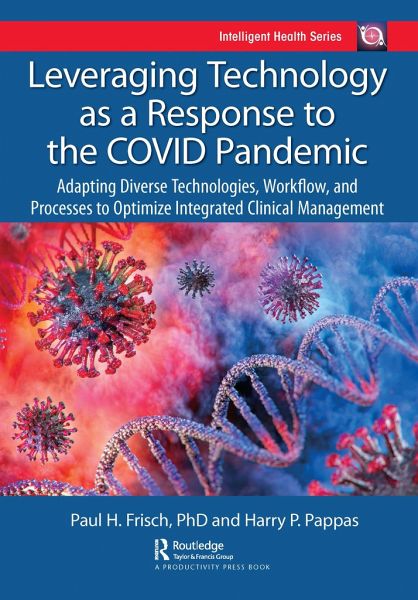Paul Frisch is currently an Associate Attending in the Department of Medical Physics and the Chief of Biomedical Engineering at Memorial Sloan-Kettering Cancer Center. He currently serves on technical committees and advisory boards including IEEE Counsel on RFID, ECRI Institute and serves as the Chief Technical Officer for the RFID in Healthcare Consortium and President of the Intelligent Health Association. Paul's responsibility focuses on the investigation of new and evolving technologies and developing their potential integration into clinical applications and operations to enhance patient outcomes, care, and safety. Current areas of investigation focus on clinical 3D imaging and printing, robotics, and medical device development. Previous experiences include research in electromagnetic field induced gene expression in targeted gene therapy, human biodynamics resulting from transitory acceleration, such as crash-impact and aircraft ejection and robotic applications in pharmaceutical development. Paul Frisch has a Doctoral degree in Biomedical Engineering from the State University of New York at Binghamton and Master's and Bachelor's degrees in Electrical Engineering from the State University of New York at Stony Brook. Ashley Jackson is the Manager of the Health Technology Management group at Memorial Sloan Kettering Cancer Center. She manages a team of over 23 engineers, with varied specialties (Clinical Engineering, Radiological Engineering, Service Coordination, Project Management), responsible for the maintenance and support of more than 27,000 medical devices in a multi-facility institution. Ashley focuses on operationalizing technology-driven hospital initiatives ranging from small implementations of new technologies to large, hospital-wide medical equipment rollouts. She strives to find new and innovative ways to utilize technology to enhance patient care. Ashley is an active member of numerous hospital committees, including the Clinical Device Product Evaluation Committee (CDPEC), Executive Safety Council, and the Alarm Management Committee. As part of the Alarm Management Committee, she has presented at events including but not limited to the Voalte VUE Conference, the Comprehensive Cancer Consortium for Quality Improvement (C4QI), and the 2019 MSKCC Joint Commission Opening Ceremony. Ashley's holds a master's degree in Electrical Engineering with a concentration in Wireless Communication and a bachelor's degree in the same subject. Outside of her work at Memorial Sloan Kettering, Ashley loves to play music. In her free-time, she is typically found with a microphone in hand in front of a guitar or piano. Paul Booth is the Founder of Applied Surgical Robotics, LLC in New York, NY. He is also on the advisory board of the New Jersey Institute of Technology. Prior to that he was a section head of Clinical engineering Operations at Josie Roberson Surgery Center, Memorial Sloan Kettering Cancer Center. He serves on various committees such as the Laser Safety Committee, MRI Safety Committee, Clinical Device and Product Evaluation Committee. He has contributed to numerous peer-reviewed publications including the IEEE Engineering in Medicine and Biology Society. He also has served as a clinical reviewer for ECRI Health Devices. He also has numerous patent applications pending. Samuel Hellman, Ph.D., Manager of Mechanical Engineering: Dr. Hellman is a mechanical engineer with a background in experimental fluid dynamics, thermodynamics, instrumentation, mechanical design, scientific imaging and optics. In addition to his position at MSKCC, he holds an appointment as Adjunct Assistant Professor of Mechanical Engineering at the University of North Carolina - Charlotte (UNCC). He has experience designing a broad range of mechanical systems and instrumentation for use in research and production environments. These projects span medical, aerospace, manufacturing and energy production sectors with academic, government and industrial collaborations. His personal research has been related to experimental laser-measurement systems for flow-structure interactions.





